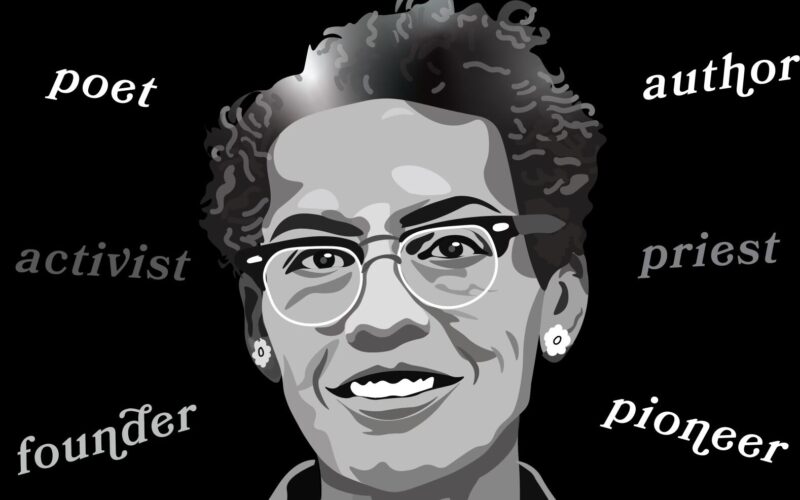What to Expect of This Week’s MLK Symposium
Media provided by Ms. Antonella Dominguez.
The annual Martin Luther King Jr. Symposium, taking place this year from Jan. 12th-14th, is a hallmark of the school year and provides a place for Grace students and faculty to engage in meaningful discussions centered around equity and inclusion – without the pressures of grades and assessments. During that time there are no regular classes, allowing for students to focus on faulty and student-led workshops with their undivided attention.
The topics of the symposiums vary – last year’s workshops included ones titled “The Wedge of the American Dream” and “Interracial Discussions on TikTok” but each year centers around one theme, this year’s being “Visible and Invisible Selves.” Over the past seven years, the symposium has undergone many changes in the focus of the workshops and the structure of the program to better celebrate the legacy of Dr. Martin Luther King Jr.
When the High School opened in 2012, it not only welcomed a new branch of the Grace community but also ushered in fresh insight. After learning about the MLK program held at the 86 campus, the pioneers of the symposium realized that there was an opportunity for the High School to host their own program that built off of the one at 86 and engaged with students on a deeper level. Some of the teachers who originally worked on the program included Toby Nathan, Kallan Wood, Kim Chaloner, and Christina Olivares, among others who are no longer at Grace. Currently, Jennifer Tashman, Andrew Leonard, and Jean-Robert Andre are the main organizers of the symposium, but since 2015, many members of the community have contributed to the growth of the event.
The program at the 86 campus consisted of the MLK parade and the Peace Chapel and lacked a more interactive component. The teachers of the High School intended to improve upon this by introducing greater opportunities for student leadership. With this in mind, the High School symposium was launched, initially spanning for 90 minutes on a Wednesday and involving two rounds of workshops. In previous years, there were only student-led sessions, but as Dr. Nathan, curriculum coordinator and primary organizer of the event, explained, “We don’t want to suggest that it’s the students’ job [to educate the community]… We need to signal to students that we’re in this work with them; we’re not asking them to do it for us, we’re doing it together.”
This year, the symposium will start with a community meeting followed by workshops that will take place over the course of three in-person days for the first time since its inception. Using Sched.com, students will select three workshops out of the 50 offered. The workshops last for about 35-40 minutes and focus on everything from modes of empowerment to exploration in art, all with a focus on race.
As of last year, the workshops are required to center around race and antiracism after conversations brought about by Black@Grace, the Black Lives Matter Movement, and spearheaded by students of color who called attention to the fact that these workshops were starting to stray away from their primary purpose: recognizing the work and legacy of MLK. The symposium also features a speech from an outside “keynote” speaker, a part of the program that has remained constant for the past four years and aims to supplement the workshops.
Dr. Nathan and Mr. Andre, Dean of Equity and Inclusion and a forefront organizer of the symposium, voiced their hopes for this year’s event, encouraging broader conversations while strengthening student-teacher relationships. The academic pressure to consistently churn out papers and perform on tests weighs down the entire community and can cause the learning environment to feel transactional. Dr. Nathan hopes for the symposium to remedy that relationship by serving as an “equalizing space,” one in which “we’re all learning together [and] we’re all teaching together.”
Mr. Andre also described his aspirations for the symposium, hoping that, “workshops and spaces throughout the symposium ignite deeper curiosities, as well as extend conversations that have been happening in classes, hallways, affinity groups, etc.”
The MLK symposium follows a long year of hybrid and remote school and allows for the community to celebrate student leadership and the fight for racial justice that MLK pioneered nearly 70 years ago.

